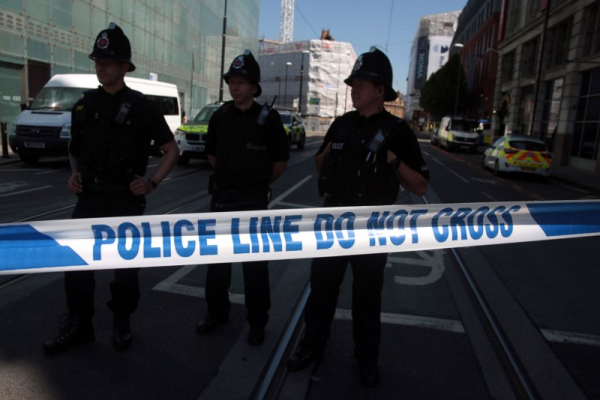

The Labour government in the United Kingdom has decided to eliminate the office of police and crime commissioner in England and Wales. File Photo by Mushtaq Mohammed/UPI | License Photo
The Labour-controlled parliament in the United Kingdom has decided to eliminate the positions of elected police and crime commissioners in England and Wales.
The position was created by then-Prime Minister David Cameron in 2012, with the goal of boosting the accountability and performance of police forces. But the current government said they are an expensive failure and that most people don’t even know who their local commissioners are.
Home Secretary Shabana Mahmood called the system a “failed experiment” and said less than 20% of voters can name their PCC.
The system created 37 elected officials who oversaw police chiefs. But critics said they often interfered and were ineffective.
When their terms end in 2028, the job will move to an elected mayor or council leaders.
Shadow home secretary Chris Philip said that sacking the PCCs “represents a tinkering around the edges from a government which is failing on crime and policing,” the BBC reported. He cited a rise in crime and warnings from police about staffing and funding cuts.
The PCCs said they were “deeply disappointed by this decision and the lack of engagement with us,” Merseyside PCC and chair of the Association of Police and Crime Commissioners Emily Spurrell told the BBC. She said PCCs “improved scrutiny and transparency, ensuring policing delivers on the issues that matter most to local communities.”
“Abolishing PCCs now, without any consultation, as policing faces a crisis of public trust and confidence … risks creating a dangerous accountability vacuum,” she said.
While some PCC were helpful, many were erratic and were dismissed as “second rate” local politicians. This left some chief constable posts open for a long time or there was high turnover in those posts.
“Democratic accountability of operationally independent policing is essential,” said Gavin Stephens, chair of the National Police Chiefs’ Council, to The Guardian. “Bringing strong, integrated local leadership and the voice of communities into our service is a vitally important part of policing by consent.”
The idea was to give more control to local areas instead of running it all from London. But the Labour Party wants a strong Home Office as confidence in law enforcement wanes. Some police departments are solving less than 10% of crimes, The Guardian reported.
“PCCs were an expensive experiment, which has failed,” said Tiff Lynch, chair of the Police Federation, which represents officers. “The tens of millions of pounds they cost should instead be a down-payment for the sort of policing service this country and its police officers deserve. … The forthcoming police reform white paper is a chance for this government to show it is serious about all of this.”